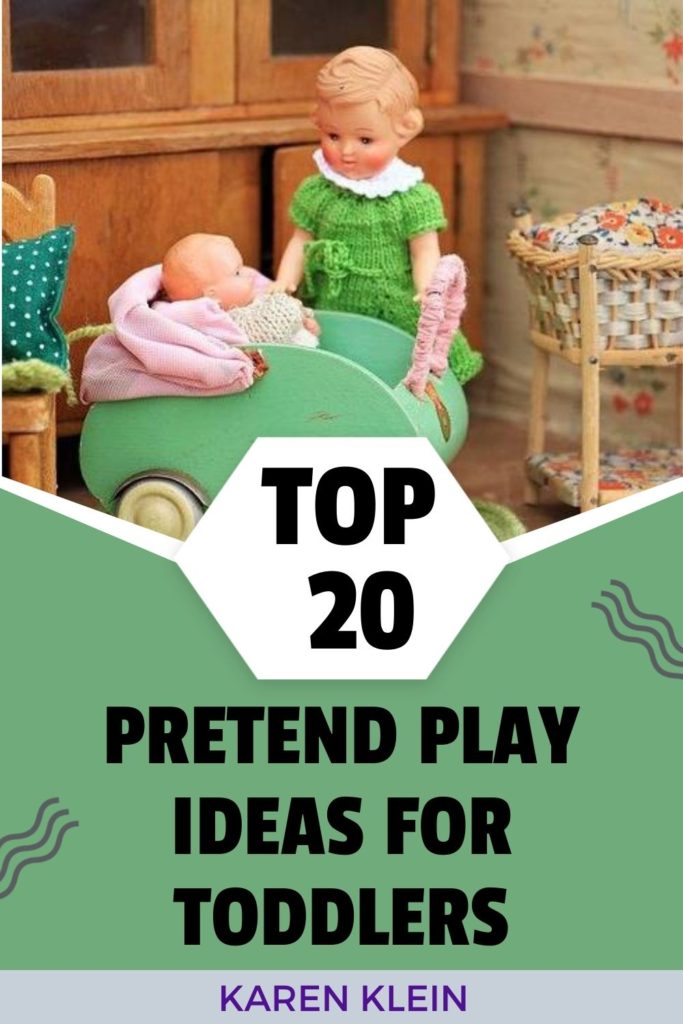
Imaginary friends are one of the weirder forms of pretend play in childhood. But the research shows that imaginary friends actually help children understand the other people around them and imagine all the many ways that people could be.
Alison Gopnik
This page may contain affiliate links which simply help you find the stuff I like a lot easier and pay me a commission! To read my super boring privacy and disclosure policies, click here.
What is pretend play for toddlers?
Pretend play is a type of symbolic play in which toddlers represent other objects, actions, or ideas that use their imagination to assign roles to inanimate objects or people. Playing helps children in both physical and intellectual development. Examples of pretend play include: being superheroes, playing ‘mummies and daddies’, playing shopping, dress‐ups, tea‐parties, playing trucks in the sandpit and playing with dolls and teddies.
People call this play in many different names:
Pretend play has many names. Some of these names are: imaginative play, creative play, make‐ believe play, fantasy play. It give your child a way to work out his feelings and helps his make sense of the world.
When does a child start pretend play?
Pretend play starts from 11 months to 18 months at any time in normally developing children.
- Many toddlers start playing their first “pretend” games between 18 and 24 months by acting out daily actions they have seen adults do, such as talking on the phone and putting on shoes.
- Between 2 and 3 years old, your toddler will use her increasing thinking abilities to play pretend. Your child may begin to play with dolls at this age as if they are “real:” feeding them, putting them to bed, and giving them roles to act out. Your child may also enjoy playing, pretending to be asleep, pretending to drive a car, or pretending to be a mum or daddy to give a bottle to her baby doll.
Interesting facts:
- A study shows that kindergarten’s vocabulary was positively related to the amount of the time they spent talking during pretend play of age 3.
- Kids who play with literacy materials, like pretending to read to stuffed animals, have better language abilities in kindergarten.
- Through imaginative play, children become more creative, perform better at school, and develop a problem-solving approach to learning.
- Children as young as 3 learn to understand the real world through realistic pretend play.
- Make-believe play is essential for kids to develop a sense of curiosity and learn how to respond to different situations.
- Researchers say free play can significantly improve kids’ problem solving skills.
Why is pretend play important for children?
Pretending is important in child development. Through pretend play, children develop:
Language Skills
A perfect imitation of mom, dad, or even teacher or doctor can be done by children. Your child understands the power of language through pretend play. A child also learns that words give him the means to recreate a story or organize a play. This method helps your child to create a skill that will later help him learn to read the link between spoken and written language.
Social and Emotional Skills
A child is actively experimenting with the social and emotional roles of life when he engages in pretend play. He learns how to take turns, share accountability, and fix problems creatively. He has the experience of “walking in someone else’s shoes” when your child pretends to be different characters, which helps teach the important moral development ability of empathy. It also help build self-esteem.
Thinking Skills
Pretend play offers a number of issues to tackle for your child. Your child depends on essential critical reasoning abilities that he can use in every area of his life, now and forever, whether it’s two children trying to play the same part or looking for the right material to build a roof for the playhouse.
The Benefits of Pretend Play for toddlers:
- It stimulates creativity. The power of the imaginations of children is an amazing thing to behold. All they need is some time, space, and your encouragement, and by pretending, they can be anything and go anywhere. They make up stories and adventures and, without even thinking about it, automatically construct whole worlds and dialogue and action sequences. This is imagination in its purest form.
- Pretend play helps children to portray what they encounter around them in the world and re-create social interactions by interacting with peers, family, parents, and even stuffed animals. It’s a perfect way for children to put into the practice interpersonal talents and complexities they’re learning.
- It encourages cooperation and the resolution of conflicts. They will decide to take turns if your child and their friend want to be the same princess when they play. Or, in return for a promise that they will play their game the next time, your child can learn to play a game that their older brother wants to play.
How to encourage pretend play in toddlers?
- Allow children to play alone, with friends or with you. They can make their own games when kids play alone. Let their imagination guide them.
- Enable them to lead. Try not to direct them while you pretend to play with them. You may give suggestions if they ask you for advice or for ideas.
- Encourage them in different and innovative ways when they don’t obey directions. Let your child know that their inventions and ideas are loved by you.
Best toys for pretend play for toddlers:
If you think your child needs a few items to make their playtime more engaging, here are my top 10 picks for the best pretend play toys for toddlers today. While most toys will help get the job done with ease, the best ones will add more excitement to their games:
From the kitchen world:
Scoop & Stack Ice Cream Cone Playset
$29.99 Melissa & Doug
$9.99 Lego
$29.99 Melissa & Doug
$29.99 Melissa & Doug
From the professional world:
$29.99 Melissa & Doug
$89.99 Amazon
Police Officer Role Play Costume Set
$29.99 Melissa & Doug
Learning Resources Pretend & Play School Set
The Pretend and Play School Set not only supports imaginative play, social interaction, and problem solving, but encourages school readiness for young students.
$33.99 Amazon
Veterinarian Role Play Costume Set
$29.99 Melissa & Doug
Fire Chief Role Play Costume Set
$29.99 Melissa & Doug
Astronaut Role Play Costume Set
$29.99 Melissa & Doug
From the home daily routine:
Let’s Play House! Dust! Sweep! Mop!
$29.99 Melissa & Doug
$59.99 Lego
Mine to Love – Annie 12″ Drink & Wet Doll
$26.99 Melissa & Doug
Casdon collection of home appliances
$20-40 Amazon
Vroom & Zoom Interactive Dashboard
$54.99 Melissa & Doug
From the shopping world:
Grocery Store / Lemonade Stand
$129.99 Melissa & Doug
$229.99 Melissa & Doug
Shopping Cart Toy – Metal Grocery Wagon
$69.99 Melissa & Doug
Learning Resources Cash Register (73 Piece Set)
$51.15 Amazon
I hope you enjoyed this article and more importantly that it will help you choose your next gift for your toddler!
I highly recommend you to read about “Play & Learn Daily Living Skills” as well as “10 Amazing toys for shoulder girdle stability”.
You can Subscribe HERE to receive future posts to your mailbox and follow me on Pinterest.
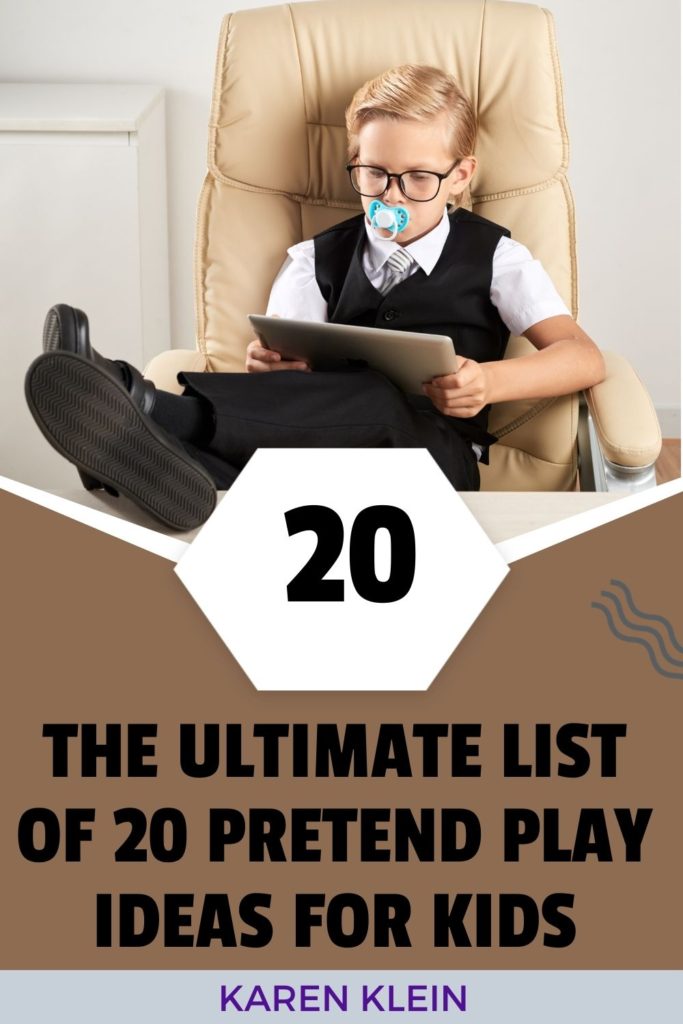
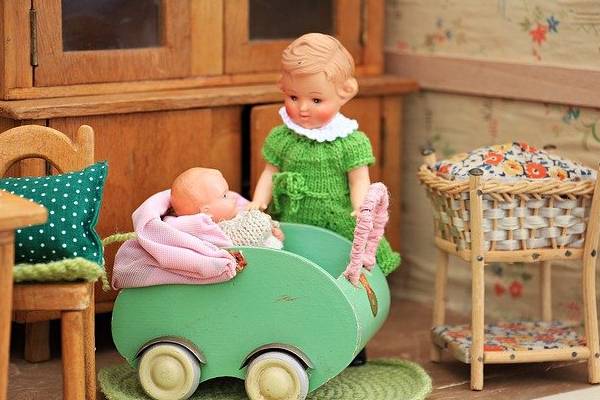

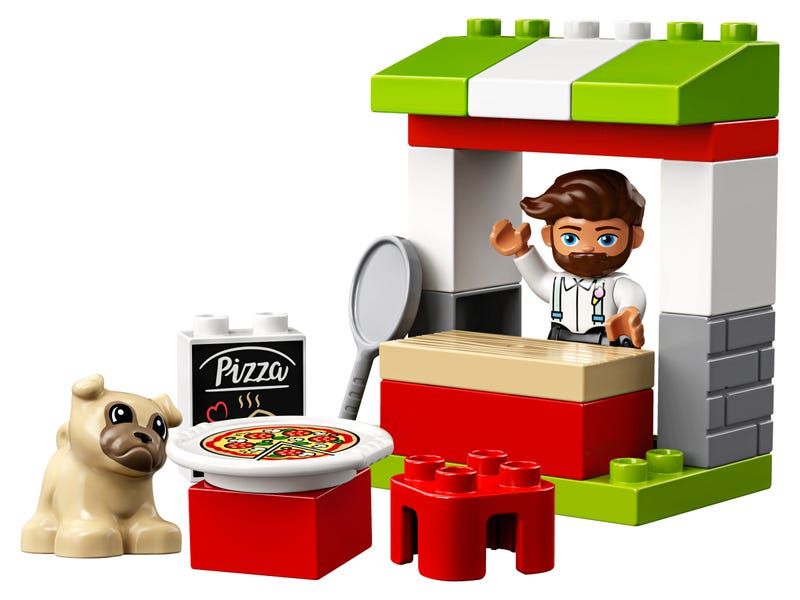










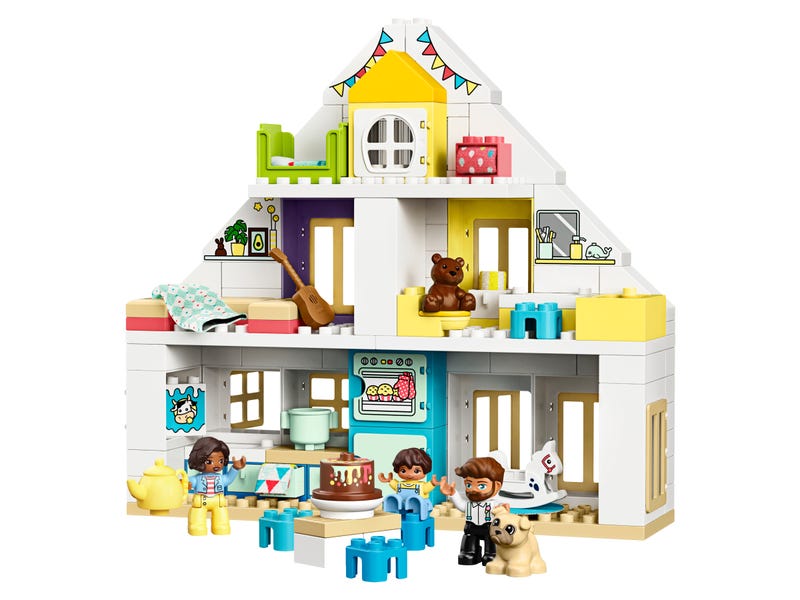






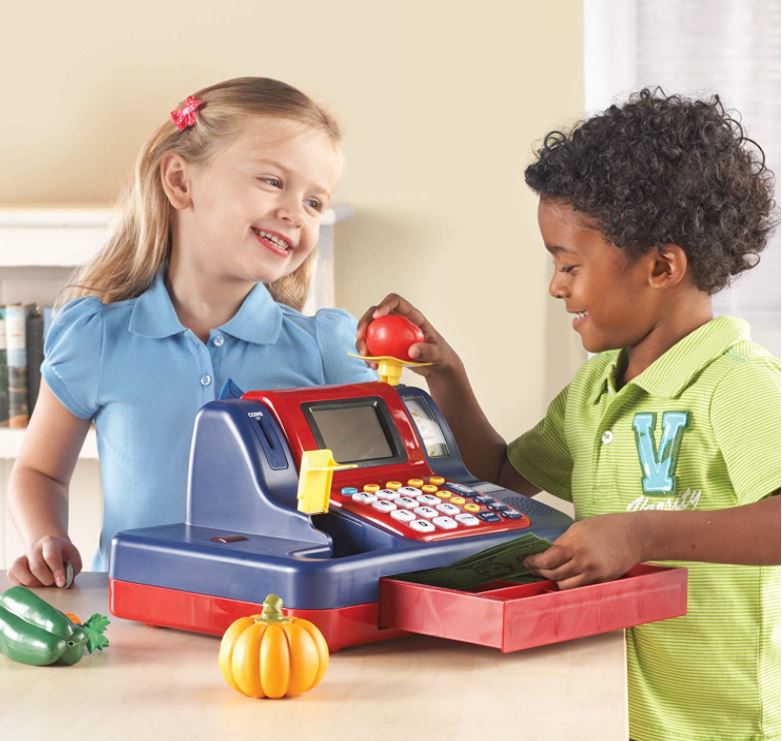

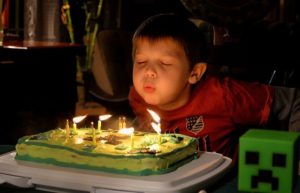

When my son was little, we often role-play. Then he learned to role-play himself. It was very interesting and fun to watch him. Thanks for your advice!